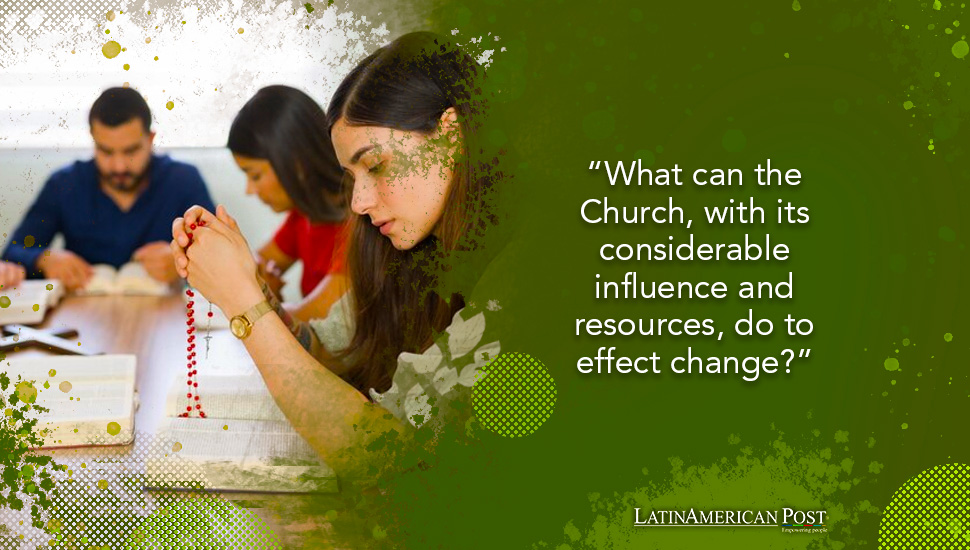Beyond Prayers: Mexico’s Church Must Act on Youth Vulnerability

Yesterday’s editorial from the Archdiocese of Mexico in ‘Desde la fe’ highlights the harrowing plight of Mexico’s children and adolescents. Acknowledging their vulnerability in an unjust social order, the Church has taken a vital first step in recognizing the crisis. However, as the rates of violence, suicide, and criminal involvement among young Mexicans continue to soar, mere recognition is not enough. It’s time for the Church, a moral and social guidance pillar, to move beyond words to concrete action.
Addressing the Crisis: The Disturbing Trends in Mexico’s Youth
In 2023, Mexico recorded 752 homicides against minors, equating to two young lives lost each day. The increase in adolescent suicides by 20% in the last five years and the rising recruitment of minors in criminal activities are alarming trends. While the Church correctly identifies the root causes – social inequity, exclusion, and a lack of opportunities – these acknowledgments fall short without actionable solutions.
The Church’s call for families to nurture children in faith and obedience within an environment of peace, love, and respect is well-intentioned but overly simplistic. Though spiritually sound, this advice does little to address the systemic issues at play. It fails to consider families already struggling within the same unjust system that preys on their children. The real question is: What can the Church, with its considerable influence and resources, do to effect change?
Firstly, the Church could leverage its vast network to create safe spaces for vulnerable youth. Community centers, after-school programs, and vocational training facilities under Church auspices could provide alternatives to the streets, where criminal gangs often recruit. By offering education, skills training, and emotional support, the Church can help break the cycle of poverty and crime that ensnares many young people.
Leveraging the Church’s Influence: Practical Solutions
Secondly, the Church’s moral authority can be a powerful tool in advocating for policy change. The Church should actively lobby for increased government investment in education, healthcare, and social services benefiting disadvantaged youth. By being a vocal advocate for policy reform, the Church can help shift the systemic inequalities that contribute to the plight of these young individuals.
Moreover, the Church can initiate and support community-based programs that focus on mental health. With the alarming rise in adolescent suicides, there is a dire need for accessible mental health services. The Church can play a crucial role in destigmatizing mental health issues and providing counseling services directly or through partnerships with professional organizations.
Collaboration for Change
Collaboration with law enforcement and social agencies is another avenue through which the Church can make a difference. By working together, they can identify at-risk youth and intervene before they fall prey to criminal activities or succumb to despair. The Church can also use its influence to ensure that law enforcement approaches to youth involvement in crime are rehabilitative rather than punitive.
While the Church’s recognition of the issue is a crucial first step, it is time to put faith into action. The Mexican Church has the moral authority, organizational capacity, and community reach to make a tangible difference in the lives of these vulnerable young individuals. It can and should lead by example, showing that faith is about prayer spiritual guidance, and active engagement in solving societal issues.
A Moral Crisis Demanding Comprehensive Action
Mexico’s youth is not just a crisis of security or health; it’s a moral crisis that calls for a comprehensive response in which the Church can be a central player. By implementing programs that address educational, emotional, and physical needs and by advocating for systemic change, the Church can help steer these young lives toward a more hopeful future.
Also read: Unnecessary Apology: Another Perspective on Mexican President’s Misgendering Controversy
Today’s youth are not just passive victims of an unjust order; they are the potential leaders, innovators, and caretakers of tomorrow’s world. Their well-being should be a priority for their families, the government, and all societal institutions, including the Church. The time has come for the Church to transform its words of concern into deeds of change. This is not just a responsibility; it’s a moral imperative.
While the Church’s recognition of the vulnerability of Mexico’s youth is a positive step, it is insufficient. The Church must rise to the challenge and become an active change agent. By providing practical support, advocating for policy reforms, and collaborating with other sectors of society, the Church can help address the root causes of youth violence and suicide. It’s time for the Church to pray for these young souls and act decisively to protect and empower them. The future of Mexico’s youth, and indeed the future of the nation, depends on it.





